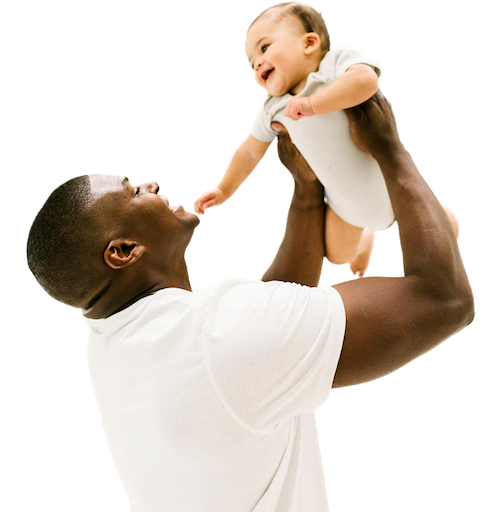Does it seem like your baby is gassy at night? Are you wondering if gas is keeping your baby awake? Let me walk you through my best tips for helping a gassy baby, show you positions to relieve gas in babies, and more.
Taking Cara Babies Classes
stars ( reviews)
Wish you had a great little sleeper? I can help! I’ll teach you everything you need to know to lay a healthy sleep foundation to achieve great days and nights, even if your little one is a bit gassy.
Choose your child’s age to get started:
Why is my baby gassy?anchor
Gas is a normal by-product of digestion (it happens to everyone!). But babies have some lifestyle differences from adults that make gas more likely.
Here are reasons your baby may be gassy:
Crying: When your baby cries, they often take in extra air. That extra air fills the stomach, resulting in a gassy baby who needs to burp.
Feeding: For many babies, simply the act of learning to breathe and eat at the same time can sometimes result in swallowing air. Just like with crying, air in the belly means gas. If your baby is bottle feeding, they may swallow air in the process, especially if the nipple isn’t full of milk or if their lips aren’t securely sealed around the nipple. Similarly, if your baby is nursing, a poor latch can make them more likely to swallow air while feeding.
Digestion: Your baby’s digestive system is still immature and developing over the first several months. This means that your baby may have extra gas from digestion.
Bearing Down: A physical skill we don’t often talk about is the ability to bear down (or valsalva), which allows us to pass gas. Adults and even children often do this without thinking about it. On the other hand, infants, especially newborns, haven’t yet mastered this skill, making it difficult for them to pass gas on their own.
Expert Tip: The American Academy of Pediatrics says that gas peaks around 6-8 weeks. By about 3 months, gas discomfort seems to be much better.
Some babies experience more gas at night than during the day. For these babies, there are additional reasons why gas increases at night.
Why is my baby so gassy at night?anchor
Does it seem like as soon as the sun goes down gas becomes an issue? You’re not alone if your baby is gassy at night. Here are a few reasons gas may increase at night:
Lack of Movement: Babies aren’t moving as much as they are during the day, so gas has less opportunity to pass on its own.
Increase in Crying During Evening: Babies may be fussier in the evening hours or experience intense witching hours. Excessive crying can cause them to swallow or take in extra air.
Expert Tip: If you’ve noticed your newborn constantly moving or making sounds while asleep, you may be seeing active sleep rather than gas. This doesn’t mean that they’re uncomfortable. It’s simply a normal part of newborn sleep.
If you need more help with your newborn’s sleep, I’m here for you. My no-cry newborn class will teach you how to read your baby’s cues and help you with days, nights, and common newborn concerns, like gas.
What are some signs of a gassy baby?anchor
Here are some signs your baby is experiencing gas pains:

For some babies, gas leads to extra fussiness.
Why? As gas stretches the intestine, it can cause some discomfort or pain. In these early months, they may need more help with burping or trying other positions to relieve gas. For many, gassy-baby symptoms improve as soon as gas is passed- whether with help from a caregiver or if a baby passes gas on their own.
Important Note: Did you know that an overtired baby can often look like an uncomfortable or gassy baby? That’s why knowing how to read your baby’s cues, calm a fussy baby, and set up a healthy sleep routine can be so important in these first few months. I teach all of this, and so much more in my First Five Months Bundle.
However, if you’ve taken my class and tried calming techniques with your little one and you’re still seeing a baby who is frequently uncomfortable, struggling to settle, or never calm, please be sure to talk with your pediatrician.
What is the best sleeping position for a gassy baby?anchor
In order to reduce the risk of SIDS, you’re always going to lay your baby flat on their back for sleep (on a firm surface with no loose bedding).
Parents often ask if they should position their gassy baby on their stomach or side for sleep to help with gas (or even reflux). The answer is no. However, if your baby is able to roll independently to their stomach, it’s safe to allow them to sleep in this position (as long as they are not swaddled). But, you’ll always want to place your baby on their back to start and let them be the ones to do the rolling.
Safety Note: Research tells us that a firm, flat surface (in a “crib,” “portable crib,” “bassinet,” or “play yard”) is the only safe option for unsupervised sleep.

Hold your baby’s ankles and gently push their legs towards their tummy in a circular motion- as if they’re pedaling a bike.
2. Knee pumping anchor

Hold your baby’s calves and bend their knees, so their thighs firmly but gently press into their tummy. Hold for 2-3 seconds and then release by stretching out their legs again. Repeat.
3. Hip rollsanchor

Hold your baby’s calves and bend their knees, so their thighs firmly but gently press into their tummy. Roll their hips to one side, and hold for a moment. Roll their hips to the other side and hold for a moment. Now, roll their hips in a gentle circular motion. Repeat.
4. Side holdanchor

Hold your baby on their side. You’ll want to position their back against your torso and the length of their body along your arm.
5. Criss cross sittinganchor

Sit down with your legs in a criss-cross-applesauce position. Place your baby on your lap between your legs with their back against your tummy. Make sure that little bum is lower than the legs and ankles.
6. Frog holdanchor

Place your baby in front of you so that their back rests against your chest. Put your hands under their bottom and cup their feet in your hands. Gently push their knees up and outward so that you are holding them in a frog position. You can also lay your baby down on their back and mimic this squatted froggy position.
7. “I Love U” belly massageanchor

Use your hand to make an "I" on your baby's left side (your right) starting from the top of the belly and moving down along their side. Then starting on the upper right side (your left) of their belly make an upside-down “L.” This will be an across and then down motion. Then, starting at the bottom right side (your left) of their belly, make an upside-down "U." The motion will be up, across, and back down. Follow up with some bicycle kicks. Repeat as needed.
Are there any products that can help with baby gas?anchor
Some parents find baby gas relief through the positions above and baby gas relief products like mylicon drops, probiotics, and gripe water. Be sure to ask your doctor if you have specific questions about these products.
Does swaddling help with gas?anchor
It can! Research shows that swaddling (when done correctly) can reduce excessive crying, soothe pain, and improve sleep. This means a swaddled baby is less likely to take in air from crying, which means less gas.
However, swaddling alone may not relieve your baby’s gas discomfort. When your baby is unswaddled, try my best tips below for how to help a gassy baby.
A Note About Swaddling: Keep in mind that swaddling is only safe until your baby shows signs of rolling.
What foods can make a baby gassy while breastfeeding?anchor
If your baby is breastfed, you may be wondering if your diet is causing your baby discomfort. There isn’t any information to say that certain foods in a mom’s diet definitely cause gas in babies. However, it can be worth watching your baby and looking for trends. In some cases, it may even make sense to watch what makes you feel gassy and see if avoiding that food helps.
It’s important to remember that there are many factors that can cause gas in babies, so changing your diet may not be the solution. If you are considering changing your diet, please start by talking with your baby’s pediatrician.
What to do for a gassy baby? What are your tips for helping a gassy baby at night?anchor
If your baby is commonly experiencing discomfort from gas at night, try these tips:
1. Double check your baby’s latch or bottle angle.anchor
A proper latch can minimize the amount of air your baby takes in while feeding. For breastfeeding babies, check that your baby’s chin and nose are touching the breast, and lips are out. I’d love to walk you through some breastfeeding basics.
For bottle-fed babies who are struggling with gas, angle the bottle so that formula or breastmilk fills the nipple to keep extra air out. You can also try bottles or nipples specifically designed to decrease the amount of air being swallowed during feedings.
Expert Tip for formula feeding: Often formulas require shaking or mixing. This can result in a bottle full of bubbles. Try to allow those bubbles to settle in the bottle before you offer it.
2. Switch feeding positions. anchor
Feeding your baby in an upright position can help. When your baby’s head is above their stomach, gravity works with the process of digestion to move gas. If a fully upright position doesn't work for you or your baby, you can try a semi-upright position.
3. Hold your baby upright after a feeding.anchor
Holding your baby upright after feeding will also allow gravity to help your baby with gas. For night feedings, it’s okay if your baby falls asleep while being held upright (This is expected!). For daytime feedings, consider these tips to keep your baby upright and awake.
Expert Tip: For 20-30 minutes after a feeding, try to avoid positioners or “containers” that hold your baby in a seated position, like a swing or a carseat. These can put pressure on your baby’s tummy and keep gas trapped, which can increase discomfort.
4. Practice tummy time during awake time.anchor
Movement along with gentle pressure on the tummy can help move gas along. Giving your gassy baby opportunities for tummy time throughout the day will help them pass gas. This can minimize the buildup of gas at night. If your baby isn’t a fan of tummy time, here are alternative positions that may help.
5. Burp effectivelyanchor
A good burp can help avoid excess gas buildup.
Attempt to burp halfway through a feeding and then again after finishing the feeding.
Try for 3-5 minutes to get a burp out, but if you don’t hear anything, it’s okay to either continue with the feeding or try again in a few minutes if the feeding is finished.
Try not to stress too much about getting a burp every time. Some babies burp more than others and may burp more at one feeding than another.
If burping your baby is a struggle, I’d love to share some burping tips with you.
6. Consider talking to your doctor.anchor
If your baby is still uncomfortable from gas, you may want to talk to their doctor about:
A probiotic
Gas drops
A change in diet or formula. Each baby can have unique sensitivities, so please work closely with your doctor before making any big dietary or formula changes.
Will your classes help my gassy baby sleep?anchor
They can!
Even if your baby is struggling with gas, my First Five Months Bundle (0-4 months) can help. Often, overtired babies can mimic signs of discomfort. My classes will give you the tools to differentiate between overtiredness and true discomfort. I’ll teach you how to calm your fussy baby, learn your baby’s cues, and set your days and nights up for success. I want you to love the newborn stage.
Keep in mind that the information and content on this blog is for informational purposes and should not be considered medical advice. If you have questions about your child, please reach out to your doctor.












